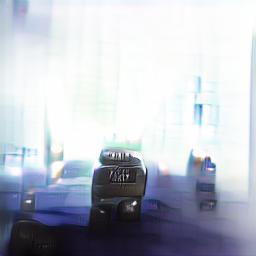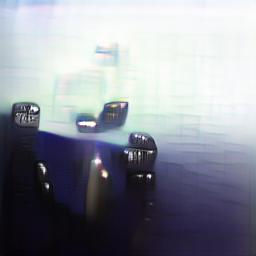Shengni Zhang
shengni.zhang@qq.com
Works made in the Information Experience Design elective "Sci-Sense" in Royal College of Art
Informing Stories - Global Warming
with Tingfang

What
We have created a virtual reality (VR) experience based on a scene of the ocean after global warming. Audiences can look around with ice’s perspective. In the scene,there are several televisions on different ice. Audiences can hear diverse opinions on global warming from people come from different backgrounds such as science, academic, farming industry and energy industry. Meanwhile, sound of the waves in the background. In addition, there are soccer ball, cars owing on the sea which indicate the human activities and human civilization. It might be installed in museum as an exhibition. Museum can draw on the new technology VR to approach more inclusive audiences of all ages and backgrounds. Besides, it might be showed in public space like a park. Audiences wear on the VR headset in a water ball to experience it.
Why
The brief is to create a work that communicates an aspect of global warming with a focus on language. We found an interesting opinion that instead of saving the earth, to protect the environment is to protect ourselves. The earth has survive over 4.5 billion years so the “disaster”(global warming) is nothing to it. Thus we decided to let audiences look around with ice’s perspective. In other words, audiences experience a bystanders’ viewpoint in this VR environment. We want to let this immersive experience create a new emotional feeling.
How
We used C4D and Rhino for modeling. Then, we imported the model into Unity and did the coding part. This project can be re ned by including di erent languages and di erent genders. Furthermore, controller can be added in order to allow audiences interactive with the scene better.
Performing Patterns - Human and AI
with Akvile and Dale
Human's Drawing:
AI's Drawing:
(↑press the arrows to see more pictures)
What
This project looks at how humans and AI can interpret and generate images. We have created a space where viewers can explore and compare the drawings made by humans and AI as well as have a discussion about our future and technology. To prompt the conversations we have added questions onto display plinths such as: ‘How can AI aid the vulnerable?’, etc.
Why
The inspiration for this project was drawn from Etch-A-Cell initiative which got us interested in how we still rely on human interpretation rather than AI. We wanted to show how creative people are at understanding and interpreting concepts in comparison to AI, which generated rather obscure imagery.
How
A website www.drawthisword.com was set up and shared online asking people to interpret the word ‘phone’ and draw it out. The same was asked of an AI bot. We shared this link on social media and provided the bare minimum instructions:
‘Follow this link, draw the word that you see on the screen and click submit once you’re done’ We want to see how people interpret the whole process including the drawing.
Participants were only provided with two tools: pen and eraser to create an image. The drawings were the printed onto vinyl and stuck onto clear acetate.
Debunking Myths
with Akvile and Michel
What
A project that looks at anti-vaccine myths and negative impact they can have on peoples lives. It is an experience that at first glance comforts those with anti-vaccination views which are presented as a quilted blanket with anti-vaccination billboard images and slogans such as ‘Vaccines can kill’. As the viewers gets enticed by a ‘comfortable’ space and objects such as arm chair, a blanket, teapot they will discover that the blanket introduces another side of the story.They will find tragic stories of parents who’s children lost lives due to anti-vaccination.
Why
Project’s research looked at anti-vaccination campaigns and how they communicate their messages through billboards. We have analysed their visual language, how they play with people’s emotions through imagery, bold statements and tone. Upon doing more research of anti-vaccine campaigns we have noticed how one-sided their views were and decided to introduce counter-counter-arguments.
How
Borrowing the visual language of anti-vaccination billboards we have created a quilt with opposing stories. To transfer the images onto fabric we have used iron-on paper which gave it a clinical/ plastic feel, making the experience of touching the blanket even more uncomfortable. We have also used stitching around the pattern to make the blanket look more hand made. The set up of the experience also consist of a comfortable armchair, a plant, a teapot and a cross stitched sign to invite the viewer to interact with the objects and create a relaxing, homely feeling.








































